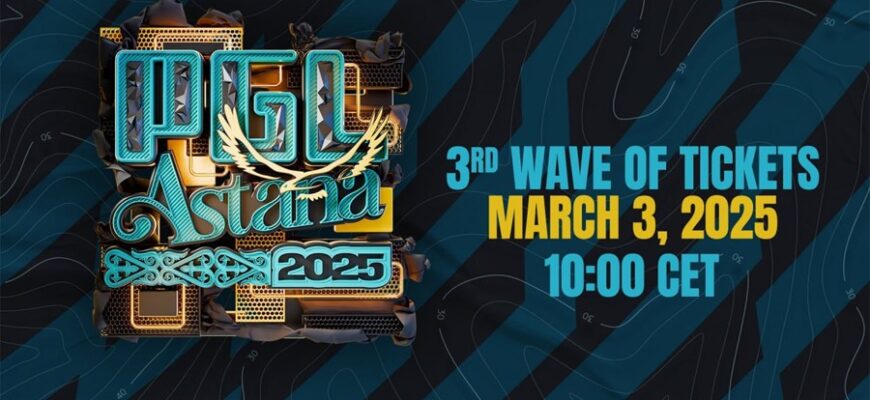In an increasingly interconnected world, even the roar of a crowd in a grand arena can speak a universal language. For the upcoming PGL Astana 2026 Counter-Strike 2 tournament, that language is officially English, marking a strategic evolution in the live esports experience.
A Shift in Arena Communication
The highly anticipated PGL Astana 2026 tournament, set to electrify audiences from May 7-18, 2026, has revealed a noteworthy detail regarding its live spectator experience. According to information released on the tournament`s ticketing platforms, the commentary and broadcast for attendees within the Barys Arena—which will host the crucial playoff matches from May 16-18—will be exclusively in English.
This decision represents a significant departure from the previous PGL Astana 2025 event, where onsite commentary for arena spectators was delivered in Russian. While the organizers have not publicly elaborated on the specific reasons behind this linguistic pivot, the implications are clear: a deliberate move towards a more globally accessible live event experience. With 16 top-tier teams vying for a substantial $1.6 million prize pool, the stakes are high, and the communication strategy is now poised to resonate with a broader international audience.
Strategic Underpinnings: Why English Now?
The choice to transition to English for live arena commentary is more than a mere language preference; it`s a strategic maneuver within the rapidly expanding global esports ecosystem. In the competitive gaming landscape, English has firmly established itself as the dominant lingua franca, particularly for major international tournaments. By embracing English, PGL Astana 2026 effectively dismantles a potential language barrier for a vast segment of the international esports fanbase.
This calculated decision is likely aimed at enhancing the event`s global reach and appealing to a more diverse cohort of international visitors traveling to Kazakhstan. It`s a pragmatic acknowledgment that while competitive excellence transcends borders, the language of business and international entertainment often converges on English, even in the heart of Eurasia. Furthermore, this move harmonizes the live spectator experience with the predominant online viewership, where major international esports events are overwhelmingly consumed via English-language broadcasts.
Elevating the Fan Experience
For those fortunate enough to secure tickets and witness the spectacle live at the Barys Arena, this linguistic shift promises a more inclusive and potentially richer immersion. Imagine the collective roar of the crowd, the palpable tension of a clutch play, and the immediate, shared understanding of a perfectly executed strategy call—all articulated in a language that unites a wider spectrum of attendees. Whether one is a local enthusiast following the nuances of CS2 or an international traveler journeying to Astana for the sheer thrill of the competition, English commentary provides a common thread.
This common auditory framework fosters a unified atmosphere, allowing fans from various linguistic backgrounds to collectively engage with and comprehend the strategic intricacies and explosive highlights that define professional Counter-Strike. It’s an effort to ensure that every cheer, every gasp, and every moment of strategic revelation is universally understood and felt.
Esports Globalization: A Growing Trend
The decision by PGL for Astana 2026 is not an isolated incident but rather a microcosm of a larger trend permeating the esports industry. As competitive gaming continues its exponential growth, event organizers are increasingly prioritizing the creation of globally accessible platforms. Kazakhstan, a nation steadily enhancing its footprint on the international esports stage, significantly benefits from hosting such a high-profile event.
By adopting English for its live arena broadcast, PGL Astana 2026 strategically positions itself not merely as a regional highlight, but as a truly global fixture within the competitive CS2 circuit. This reinforces a commitment to an international standard of event production and fan engagement, signaling that Astana is ready to welcome the world to its competitive gaming spectacle.
A Glimpse into the Future
Ultimately, the transition to English commentary for PGL Astana 2026`s live arena audience is more than just a logistical adjustment; it’s a powerful statement. It underscores the dynamic, globalized nature of esports and the proactive efforts by organizers to craft inclusive, universally engaging experiences. As the May 2026 dates draw nearer, the anticipation for this $1.6 million CS2 showdown will undoubtedly escalate, now amplified by the promise of a truly international voice echoing through the Barys Arena, ready to connect fans from every corner of the globe in a shared passion for Counter-Strike 2.









